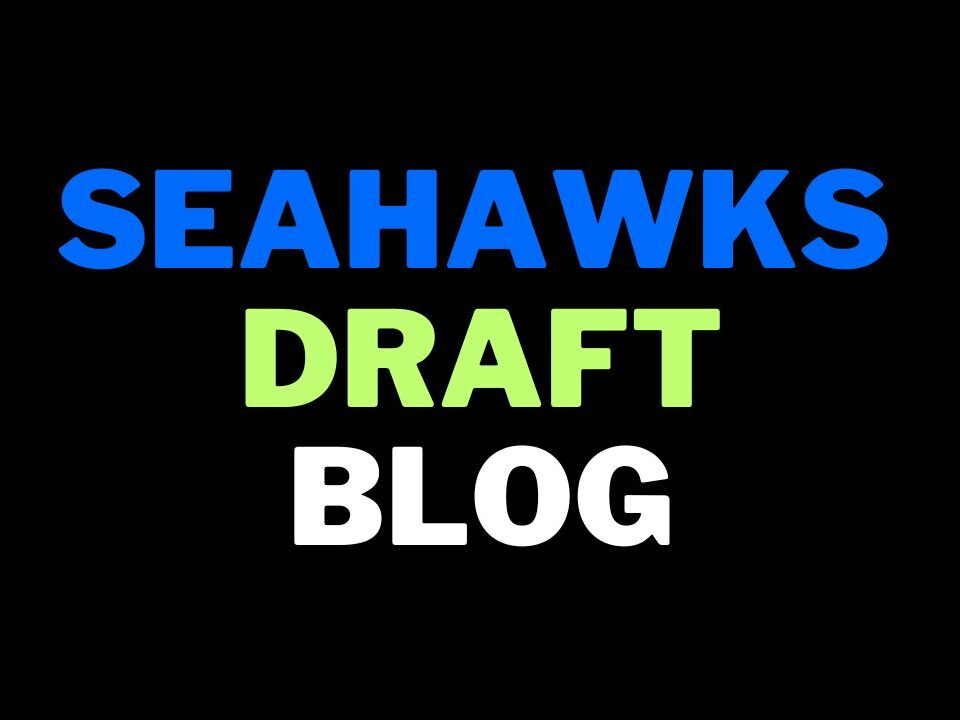Posted by Kip Earlywine
The other day I was reading SB nation’s Seahawks blog Fieldgulls, and a certain article caught my eye, site-author Danny Kelly’s interview with veteran NFL scout Dave Razzano, who’s not currently active but has worked in the NFL as far back as the 1980s. I’ll get this out of the way and mention that you might not agree with everything Mr. Razzano says, including his obvious man-crush on Nate Davis, his dismissive words for Ryan Mallett and his opinion that Russell Okung isn’t very athletic and is better served at right tackle. But sometimes even a person you disagree with has the capability of providing unique and interesting insights from time to time. Here is what Razzano had to say about how he looks at Jake Locker, known to be a high profile target for the Seahawks should he reach #25:
Jake Locker, to me, is a Brett Favre clone and the same things people say about Locker they said about Favre coming out of S Mississippi. Poor accuracy, can’t read defenses etc. Not shocked when I checked out favre’s total college stats vs Locker and they were identical Favre in college….55 td 35 int 53.2% completion. Locker…53 td 35 int 53.6 completion percentage. This is why you can’t put emphasis on the stat sheet. Most of the stats is the team you are on and the system. Joe Montana did not have overly impressive stats coming out of Notre Dame. When you studied him closely he made plays when team needed them most..Had “winner” written all over him, just like Locker does today.
I wasn’t even 10 years old when Favre played his final college snap, and I barely watched college football. When I did, I sure as hell wasn’t watching Southern Mississippi games, and as such I can provide zero insight into how a young Jake Locker would compare to a young Brett Favre. However, like anyone not living in a cave the last 20 years, I know plenty about Brett Favre, NFL quarterback. And considering that, I’m surprised I didn’t make this connection on my own, since, you know, Brett Favre is one of the most famous and over-exposed NFL players in the history of Earth.
Brett Favre is 6’2″, 222 lbs. Locker is 6’2.5″, 231 lbs. Locker raised concerns among some for scoring only a 20 on the wonderlic test. Brett Favre scored a 22. Both were the star attractions of their college teams with very little supporting talent. Both are exceptionally mobile quarterbacks at their best on the move (I’ve read Favre ran a 4.60 forty coming out of college), and both have strong right arms with similar mechanics. And while Locker could very well be drafted 10th or 12th, if he gets past Minnesota, he’ll likely slip to the late 1st or early 2nd round, the place where most analysts believe he “should” be selected. Brett Favre himself was picked near the very beginning of round 2 (#33 overall). Though Favre was famous for not missing games, he took a beating and constantly played hurt. So did Locker at Washington. Favre sat his first season in the league and didn’t become a starter until his 2nd year. Similarly, Locker is a guy you probably would wait a year before pressing into action. And then of course you have the incredible statistical similarities Razzano mentions. I don’t put a ton of stock into college stats, but that is a remarkably close comparison.
Already, we’ve got a pretty stunning list of similarities between the two, but the biggest similarity of them all is the mentality both players share. Locker doesn’t slide. He lowers the shoulder and powers through. Though Sarkisian reigned in Locker somewhat in 2009 and especially in 2010 by specifically coaching him to throw the ball away more, you could always tell that Locker’s preference was to force passes into tight windows, completely trusting his incredible arm. As it turns out, the “wilder” version of Jake Locker seen in 2009 was a lot better than the “safer” version we saw in 2010. My initial diagnosis of Locker was that he’d go to a tightly controlled environment and continue his progress at being a safer quarterback, very similar to when Mike Shanahan salvaged Jake Plummer by beating those gunslinger habits out of him. But I’m now beginning to wonder if playing it safe with Locker does his talent injustice. Brett Favre is one of the greatest quarterbacks of all time, and he’s also the NFL’s all time interception leader. Perhaps like Favre, Locker could loosen up his game somewhat at the expense of suffering more interceptions, with a tradeoff in yardage and touchdowns that makes up for it and then some.
I guess its worth wondering what type of approach Seattle would take to Locker. The connection Carroll shares with Steve Sarkisian is impossible to ignore, and judging by the highly structured offense the team played Charlie Whitehurst in during week 17, it would suggest a similar “simplify and limit mistakes” approach could be in play for a young, learning quarterback. Darrell Bevell’s resume reads to me like that of a mousy “yes-man” offensive coordinator, and though he answers to Pete Carroll, make no mistake, he’ll be the one drawing up the plays and building this offense. Given Bevell’s experience and success with Brett Favre in Minnesota, its possible that Locker could be given the same leeway to make plays as Favre was afforded.
Obviously, Brett Favre represents an absolute best case scenario for Jake Locker, but if Locker becomes a Seahawk, the comparison is a lot of fun to think about. And of course, if the Redskins or Vikings feel this way about Locker, then you can probably forget about him lasting to #25, even if they don’t select him 10th or 12th. If Locker reaches #24, you better believe the Saints will be fielding some interesting calls, particularly Washington who would have no other choice but to offer future picks. Why was it that Tampa Bay dealt a late round pick just to move up a mere two spots for Josh Freeman, knowing that the team in front of them wasn’t a serious threat? Because they were wise enough to know how obvious of a landing spot they were, and it was very possible a team behind them could leap up and screw them out of a future franchise quarterback. So for almost no cost at all, Tampa eliminated that possibility, in what was probably the single most intelligent trade of that entire draft. If Locker is there at #23, Seattle should take a page from Tampa’s draft playbook and make a move.
The quarterback situation Seattle faces entering this draft is eerily similar to the one they faced in 1991, fresh off of parting ways with Seattle’s other great quarterback, Dave Krieg. Seattle needed a new quarterback, and was willing to spend a 1st round pick on the position. This isn’t a comparison I’d personally make, but a lot of people have compared Ryan Mallett to another 6’7″ quarterback who went in the mid-1st round that year: Dan McGwire. Then coach Chuck Knox, as well as the majority of the scouting department, furiously protested the selection of McGwire and had their hearts set on a different, more mobile quarterback. But Ken Behring had his heart set on Mark McGwire’s little brother, and the rest is history. That other quarterback Knox and company wanted so badly? Brett Favre.
Edit 4/24: Razzano is interviewed my Michael Silver, its worth a read. Like the Seahawks, Razzano is a huge fan of Colin Kaepernick but likes Jake Locker even more.



“When you studied him closely he made plays when team needed them most..Had “winner” written all over him, …” – I wonder if this reasoning would also work in reverse, i.e., if a college QB has a tendency to throw interceptions (or to funble) that ended up deciding close games (like Gabbet vs Iowa or Mallett vs OSU at the bowl games), then he would likely fail as a starter at the NFL level, even though he may have good stats overall at the college level. Given how difficult it is to separate out confounding factors like talent level of the rest of the team, level of competition, etc., perhaps a close game is a situation when all those other factors even out somehow, and QB capability is isolated as the deciding factor.
It would be nice if a study was done to see if there is any connection between being ‘clutch’ at the college level and having it translate.
Jake Plummer, Joey Harrington and Ryan Leaf were very clutch performers in college who were winners and both possessed the qualities of an NFL franchise QB. Plummer had a very mixed career and Harrington was a huge bust and Leaf is arguably the greatest draft bust of all time. And that’s just from the Pac-10 conference since I’ve been following it. On the other hand you had guys like Troy Aikman and John Elway who came out of the Pac-10 with those qualities, and they were first ballot HoF.
But that’s only five quarterbacks, and you’d probably have to look at 500 quarterbacks to come to a confident conclusion.
To me, its always something nice to have, but its just one of about twenty things I look at when evaluating a QB.
Jake Plummer was one of the great underrated players of his era. He brought the Cardinals to the playoffs in the old NFC East, and for that alone he gets a pass for the “mixed” aspect of his career.
Also– since Shanahan “gave up” on him, how many playoff games have the Broncos (or Shanahan) won… or even been to?
I lived in Arizona during Plummer’s entire college career and about half of his stint with the Cards. I was a HUGE fan of Plummer coming out of school and was surprised he didn’t go in the 1st round. However, his career was a minor disaster in Arizona. Even his 1998 playoff team wasn’t much to brag about, they were extremely similar to the 2010 Seahawks (including even a playoff win against a recent former champion opponent). In fact, statistically they are the only playoff team in history worse than 2010’s NFC West winner.
With AZ, Plummer had passer ratings of 73, 75, 50, 66, 79, and 65. Arizona made absolutely no effort to retain Plummer when his contract ran out.
In what was a mild surprise at the time, Plummer instantly became a good quarterback for Shanahan in Denver, and I think Shanahan wisely cut bait with Plummer at the right time- he was 32 years old and clearly declining, and Jay Cutler looked ready. Cutler rewarded Shanahan shortly thereafter with a top 2 offense season, and yet Shanahan was fired for it… one of the stupidest moves I’ve seen a front office make in a long time.